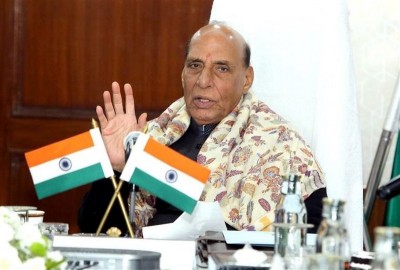
Denmark tops ‘happiest country’ list, India ranks 118th
Denmark is followed by Switzerland, Iceland , Norway and Finland.
India ranked 118th in the list.
The World Happiness Report 2016 Update, which ranks 156 countries by their happiness levels, was released today in Rome in advance of UN World Happiness Day, Mar 20.
The widespread interest in the World Happiness Reports, of which this is the fourth, reflects growing global interest in using happiness and subjective well-being as primary indicators of the quality of human development.
Because of this growing interest, many governments, communities and organizations are using happiness data, and the results of subjective well-being research, to enable policies that support better lives.
The 2016 Update was launched at the Bank of Italy during a three-day series of conferences on happiness and subjective well-being. A companion volume, the Word Happiness Report 2016 Special Rome Edition, was also released at the same time.
“Measuring self-reported happiness and achieving well-being should be on every nation’s agenda as they begin to pursue the Sustainable Development Goals,” said Jeffrey Sachs, director of the Earth Institute at Columbia University in a statement.
“Indeed the Goals themselves embody the very idea that human well-being should be nurtured through a holistic approach that combines economic, social and environmental objectives. Rather than taking a narrow approach focused solely on economic growth, we should promote societies that are prosperous, just, and environmentally sustainable," Jeffrey Sachs said.
This year, for the first time, the World Happiness Report gives a special role to the measurement and consequences of inequality in the distribution of well-being among countries and regions.
In previous reports the editors have argued that happiness provides a better indicator of human welfare than do income, poverty, education, health and good government measured separately.
In a parallel way, they now argue that the inequality of well-being provides a broader measure of inequality. They find that people are happier living in societies where there is less inequality of happiness. They also find that happiness inequality has increased significantly (comparing 2012-2015 to 2005-2011) in most countries, in almost all global regions, and for the population of the world as a whole.
The report has been produced by the Sustainable Development Solutions Network (SDSN), is once again edited by Professor John F. Helliwell of the University of British Columbia and the Canadian Institute for Advanced Research; Professor Richard Layard, director of the Well-Being Programme at LSE’s Centre for Economic Performance; and Professor Sachs, director of the Earth Institute and SDSN.
The update finds the top 10 countries to be the same as in the 2015 report, although their ordering has changed once again, with Denmark regaining the top spot, followed closely by Switzerland, Iceland and Norway. The top 10 are rounded out, in order, by Finland, Canada, Netherlands, New Zealand, Australia and Sweden.
The US ranked 13th, two spots higher than last year despite having a lower score.
Support Our Journalism
We cannot do without you.. your contribution supports unbiased journalism
IBNS is not driven by any ism- not wokeism, not racism, not skewed secularism, not hyper right-wing or left liberal ideals, nor by any hardline religious beliefs or hyper nationalism. We want to serve you good old objective news, as they are. We do not judge or preach. We let people decide for themselves. We only try to present factual and well-sourced news.







